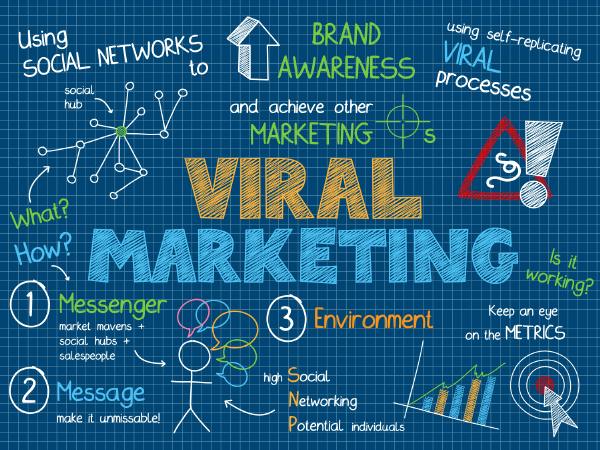
It is crucial to understand your audience when creating content strategy. This will help you choose what to write and what to offer. This information will help you deliver more effective messages and build better customer relationships. Content strategy can be used to identify customer pain points and explain how your product/service can help. For example, if your customer has a problem they are seeking a solution for, you can write content that addresses that issue and explains how your product or service can help them.
Content strategy
Understanding the differences between content marketing and content strategy can help you to clarify the distinctions. While the two can be confusing, both strategies aim to achieve the same goals. When choosing the best approach, it is important to define your audience, goals and target audience. You should analyze their online behaviors and determine the best platforms for your content. You don't necessarily need to be active on every social network. However, it is important that you focus your efforts on those networks where your audience is most active.
Content strategy is about attracting targeted visitors and converting them into leads. Content marketing covers the finer points involved in publishing, managing, and maintaining content. Both are essential in building an online presence and generating new customers. However, one is more effective than the other. It is not that much of a difference, but it is important to understand how to apply each to your business. These are some helpful tips if you're not sure where to start.
Content marketing

While both strategies are critical to a successful online marketing strategy, some content marketers are less successful than others. You can find out which strategy is better by looking at the key performance indicators (KPIs), of content marketing. Your overall strategy should be based on the goals and audience you are trying reach. To increase user retention, for example, you'll need a strategy. A content strategy designed to grow an online channel would quantify how many conversions and leads your content generates. Also, if you are trying to attract and retain employees your strategy should look at how long they stay with you and what their turnover rate.
Creating quality content is a complex process, and creating great content takes a lot of time and money. It is therefore essential to have a plan for content creation. However, a content strategy is an outline of your work and outlines how you can get there. A content strategy can be described as a guide for content creators. It covers a lot. One key difference is that a content strategy has an explicit, more specific goal.
Content model
The first step in planning a content strategy is determining your target audience. Determine their problems and then choose the channel that best addresses them. Your content should be based on your persona, and tailored to their preferences. These factors will determine the length and format for each piece. A combination of these factors can be helpful if you're planning to distribute content through multiple channels.
The content model defines the types of content and their attributes. A web page, for example, will have a descriptive title, a rich meta description, and multimedia-rich content in the body. Every industry is saturated by content. This may be revealed by competitive analysis. This type of model will help your company differentiate itself from the crowd and create a competitive advantage. However, it can be difficult to know which approach to take.
KPIs of content strategy

If you want to determine which content is generating more traffic, you need to use content strategy and content marketing KPIs to measure success. Your company's overall goals should guide your content strategy KPIs. You may not want content marketing to be attributed sales, depending on your goals. If you're unsure of what you should measure, you should ask your executives what they'd like to see.
A good KPI to track is the bounce rate. The bounce rate shows how many visitors leave your website without having read your content. If your content doesn't engage or educate the visitor, they may be tempted to leave after a few seconds. To reduce the bounce rate, consider how long users spend on your page. Your engagement rate will increase the longer visitors stay on your site.
FAQ
How do I measure success in content marketing?
There are many ways you can measure the success of your content marketing strategies.
Google Analytics is a good tool to measure your progress. This tool can show you where your targeted traffic originates and what pages they visit the most often.
It also shows you how long each visitor stays at your site before they leave.
This data can be used to improve content to attract people's interest and keep them engaged for longer durations.
These questions can also help you determine the success of your content marketing efforts.
Are my new subscribers getting any value out of my email newsletters? What percentage of my mailing list have purchased paid memberships? How many people have clicked through my landing page? Are people who click through more likely to convert than others?
These are all important metrics to track, monitor, and report on over time.
Lastly, another great way to measure content marketing success is to look at the number of times people share links to your content across social networks.
If you're not doing that already, consider starting now. It could make all the difference in whether you are seen or ignored in your industry.
What are the advantages of content marketing?
The creation of high-quality, relevant content can be used to increase sales and lead generation. Content marketing provides an ongoing stream of original, fresh content that can be used for promotion of products and services. Content marketing helps increase brand awareness, trust and engagement among potential customers. Your company's image is enhanced by content marketing.
What should I do to get started with content marketing?
Start by identifying your audience. Who are they exactly? What are their needs What can you do to help them? Once you know who you're writing for, you can determine where to focus your efforts.
Why is content marketing important?
Content Marketing is more than creating great content. It is about building relationships and engaging with people on a personal level. This requires an understanding of the online behavior of people.
This is precisely what Content Marketing Strategy does. Content Marketing Strategy can help you to understand your customers and best engage them.
It will also help you increase your conversion rates, which can lead to higher profits.
Why would you invest in a Content Marketing Strategy if there are so many other options?
Content Marketing Strategy has a higher ROI than any other marketing method.
A well-executed content marketing strategy is the best way for you to sell products or build brand awareness.
Statistics
- Companies that use content marketing see approximately 30% higher growth rates than businesses not using it. (mailchimp.com)
- According to our research, brand awareness, attracting traffic, and generating leads remain the key content marketing goals in 2022. (semrush.com)
- An example of an overarching goal could be: "In 2022, we want to achieve a 20% increase in revenue created by organic content and generate 15,000 MQLs with a budget of $30,000." (semrush.com)
- To further show the importance of this, 89% of people have stopped doing business with a company because of a poor experience. (neilpatel.com)
- Content marketing produces 3X more leads per dollar spent. Content marketing costs 62% less than traditional marketing. (criteo.com)
- Measure your goals with a progress indicator of 0-100%. Make your goals collaborative and transparent (semrush.com)
- We found that 40% of businesses don't have a documented strategy yet. (semrush.com)
- Seventy-two percent business to business (B2B) (mailchimp.com)
External Links
How To
What is a Content Marketing Plan?
A content marketing plan (CMP), is a document that helps you to define your goals, objectives and strategies for building and executing an online presence. It's a roadmap for reaching those goals through content creation and distribution.
The CMP is often broken down into three main areas.
-
Your overall strategy - What do you want to achieve?
-
Your content strategy: Where do you find the right people to create, curate, or distribute your content?
-
The tactics you'll use to execute your strategy - Which channels will you use to share your content? And what types of content will you produce?
An effective CMP includes these four components:
-
Goal Setting – Define and measure your target audience.
-
Audience Research: Understand your ideal customers to know where you should look.
-
Strategy - Create a clear vision of your goals. Break it down into smaller pieces.
-
Execution: Set realistic expectations regarding when you will see results.